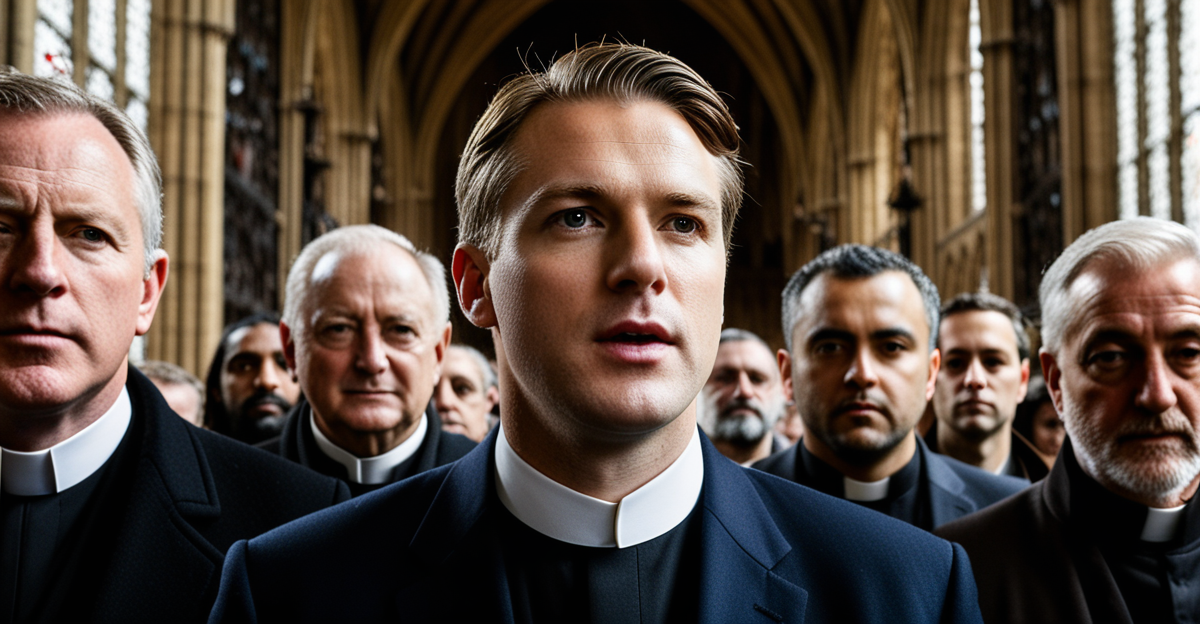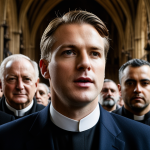The Major Religions and Historical Context in the UK
The UK religious history is deeply rooted in Christianity, notably the Church of England, which historically intertwined with state power. This establishment shaped British political structures for centuries, influencing laws and governance. Alongside Christianity, major UK religions such as Islam, Hinduism, Sikhism, and Judaism have enriched the religious landscape. These communities arrived primarily through immigration, contributing to the growing religious pluralism observed today.
The Church of England’s unique role as both a spiritual authority and political entity underscores its historical political influence. This dual role fostered a close relationship between religion and monarchy, shaping early political dynamics. Over time, the UK has evolved from a predominantly Christian society to a more religiously pluralistic one, reflecting broader global migration patterns.
This might interest you : Why Do British Celebrities Shape Public Opinion More Than Politicians?
This religious pluralism sparked early political impacts, including the need to accommodate diverse faiths within public institutions and lawmaking. The increasing visibility of non-Christian religions challenged the state to balance tradition with inclusivity, a tension that continues to shape the political landscape. Understanding this historical context is essential to appreciate how the UK manages its complex religious and political intersections today.
Current Religious Demographics and Trends
The UK religion statistics reveal a landscape marked by growing diversity and changing affiliations. Christianity remains the largest faith group, but recent censuses show a significant decline in active Christian identification, with many individuals shifting towards secularism. The rise of secularism trends is evident, as the proportion of the population reporting no religious affiliation has increased considerably in recent decades.
Have you seen this : How does the UK regulate media ownership and its influence?
Alongside these shifts, religious diversity continues to expand, reflecting immigration patterns and demographic changes. Islam, Hinduism, Sikhism, and Judaism represent prominent faith communities, each contributing distinct cultural and social influences. For example, Muslims form the second-largest religious group in some urban areas, fostering greater public awareness of religious pluralism.
This increase in religious diversity challenges public policies to strike a balance between respecting different beliefs and maintaining secular governance. Educational curricula and public services have adapted to better accommodate diverse faith practices. Understanding these UK religion statistics helps clarify how secularism trends and religious diversity interact to reshape public life and societal norms today.
Current Religious Demographics and Trends
The UK religion statistics reveal notable shifts in religious affiliation. Christianity remains the largest faith but has declined from previous decades, with around 59% identifying as Christian in recent censuses. Meanwhile, adherence to major UK religions such as Islam, Hinduism, Sikhism, and Judaism has grown, reflecting ongoing immigration and higher birth rates within these communities. Islam stands as the second-largest religion, followed by Hinduism and Sikhism, each contributing to the country’s rich religious diversity.
An important trend is the rise of secularism and non-affiliation; nearly 25% of people now identify as having no religion. This growing secular demographic influences public discourse and policymaking, pressing for a balance between religious traditions and secular values. Public institutions increasingly recognize this diversity, adapting policies to reflect a range of beliefs and non-beliefs.
The increasing religious diversity has also heightened awareness of multi-faith needs in health, education, and employment sectors. This dynamic compels policymakers to consider a broader spectrum of voices and encourages dialogue about inclusion, tolerance, and coexistence within a modern UK society.
Religion’s Influence on Political Parties and Policymaking
Religion and UK politics have long intersected, shaping party positions and legislative agendas. Major UK political parties exhibit varied religious stances, reflecting their constituencies’ values. The Conservative Party often aligns with traditional Christian perspectives, emphasizing the Church of England’s historical role. Labour tends to endorse greater religious pluralism and champions policies ensuring minority faith representation. The Liberal Democrats promote secularism while recognizing faith groups’ social contributions.
Religious lobbying is a significant force in policymaking. Faith-based organizations engage lawmakers to influence debates on education, healthcare, and marriage laws. For example, religious groups have actively participated in discussions over faith schools, advocating for their role in the education system. Similarly, during debates on same-sex marriage, religious voices shaped public opinion and political deliberations.
Faith and policy continue to intertwine, especially on ethical issues. Healthcare debates about treatments such as abortion or euthanasia often involve religious perspectives. This dynamic highlights how religion remains a key stakeholder in UK politics, balancing secular policy aims with diverse faith considerations. Understanding religion and UK politics is crucial for grasping how policy evolves amid competing values and pluralism.
The Major Religions and Historical Context in the UK
The UK religious history is dominated by Christianity, with the Church of England historically serving as both a spiritual and political authority. This unique fusion gave the church substantial historical political influence, embedding religious doctrine into governance and aligning the monarchy with Anglicanism. Beyond Christianity, major UK religions such as Islam, Hinduism, Sikhism, and Judaism have longstanding presences, brought primarily through waves of immigration and global connections.
Religious pluralism in the UK emerged gradually, reflecting demographic changes and increased acceptance of diverse faiths. Early political impacts included adapting laws and institutions to accommodate these expanding communities without threatening the Church of England’s established status. The rise of non-religious groups further diversified the religious landscape, challenging traditional power structures.
These evolving dynamics illustrate a transition from a predominantly Christian society toward a religiously pluralistic nation. This evolution compelled political frameworks to balance respect for tradition with inclusivity, laying groundwork for contemporary policies that reflect the complexity of the UK’s major religions and their enduring influence on political life.
The Major Religions and Historical Context in the UK
The UK religious history is predominantly shaped by Christianity, especially the Church of England, which historically merged spiritual authority with state power. This fusion granted the church profound historical political influence, embedding Anglicanism in governance and the monarchy. Other major UK religions such as Islam, Hinduism, Sikhism, and Judaism have established significant communities through immigration, enriching the country’s religious fabric over time.
The evolution from a primarily Christian society toward greater religious pluralism required political adaptation. Early on, the state had to balance the established Church of England’s privileged position with the realities of growing faith diversity. This balance triggered legislative and institutional changes, setting precedents for accommodating different religious communities without destabilizing traditional power structures.
Moreover, the presence of non-religious groups and secular perspectives further diversified the UK’s religious landscape. This shift challenged political frameworks to reconcile historical political influence with emerging demands for inclusivity. Understanding this context helps explain the UK’s ongoing negotiation between tradition and pluralism in public life.
The Major Religions and Historical Context in the UK
The UK religious history centers on Christianity, particularly the Church of England, which historically wielded profound historical political influence. Established as the state church, it merged spiritual and political authority, closely aligning with the monarchy and shaping governance for centuries. This unique connection institutionalized religious power within British political structures, influencing laws and public life deeply.
Alongside Christianity, the UK hosts several major UK religions—Islam, Hinduism, Sikhism, and Judaism—brought mainly through immigration. These faith communities contributed to increasing religious pluralism, challenging the Church of England’s exclusive status. Over time, pluralism prompted legal and societal adaptations to accommodate diverse beliefs, marking one of the earliest political impacts of religious change.
Non-religious groups also emerged, adding complexity to the UK’s spiritual landscape. This evolution compelled political systems to balance tradition with inclusivity. In essence, the UK transitioned from a predominantly Christian society to a multifaceted religious one, where multiple faiths and worldviews influence both culture and politics today.









